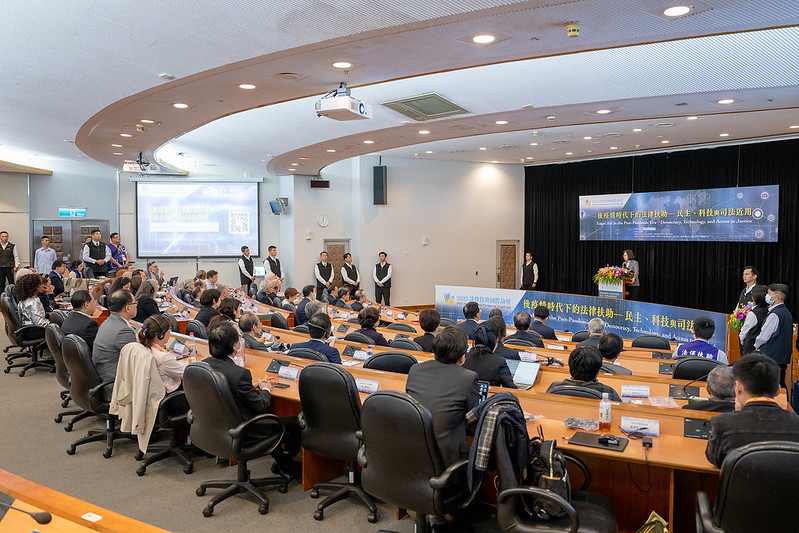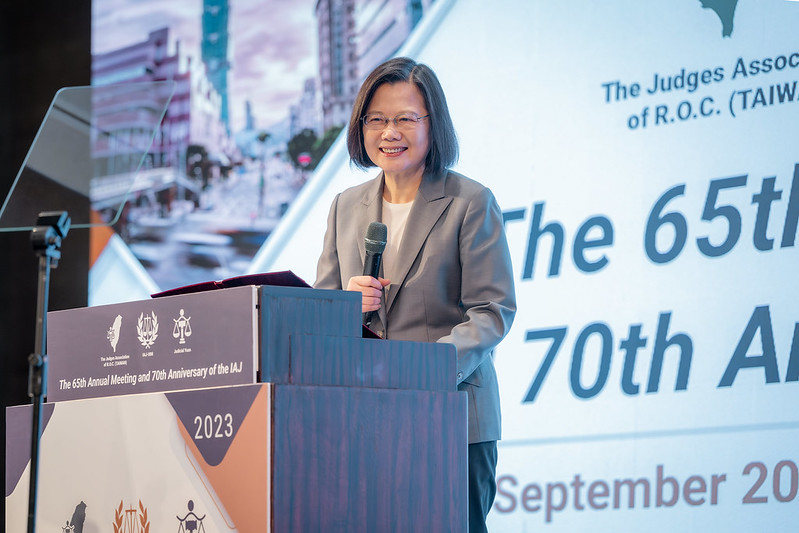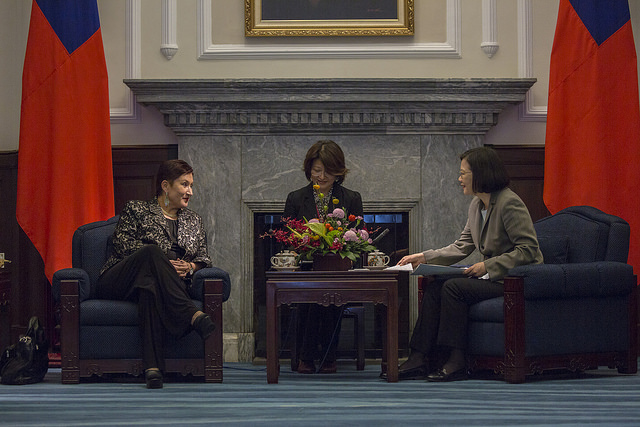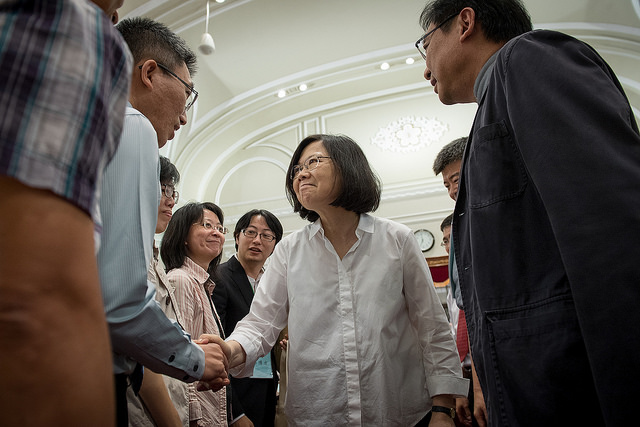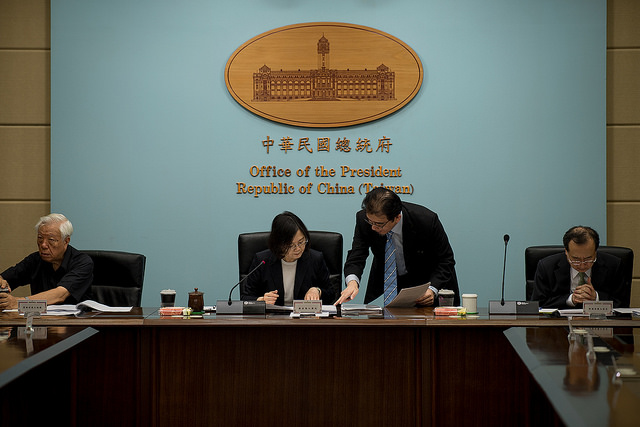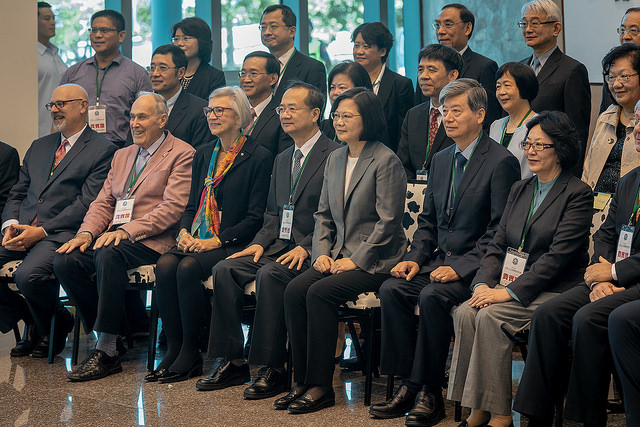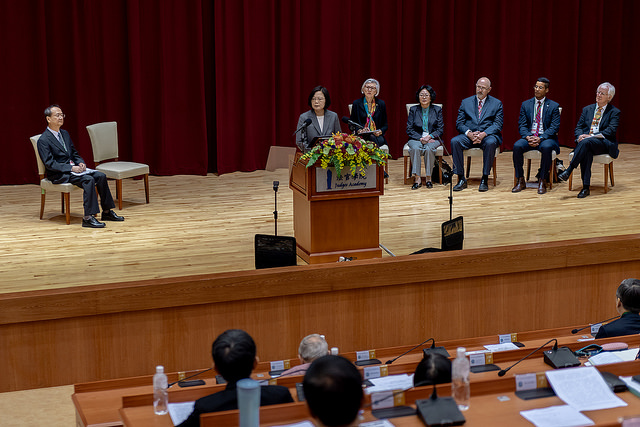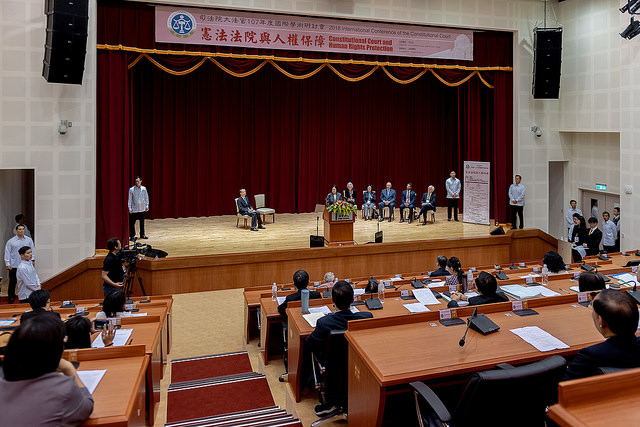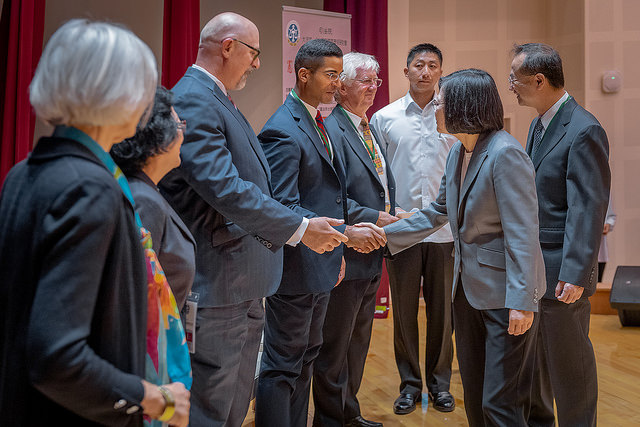News & activities
 News releases
News releases
On the morning of October 1, President Tsai Ing-wen attended the 2018 International Conference on Constitutional Court and Human Rights Protection. She expressed hope that after our judicial reform, especially the adoption of Constitutional Court Procedure Act, the Justices of the Constitutional Court will continue to guide the stable development of our democratic constitutional order and to protect the constitutional rights of our people in a more effective and comprehensive manner.
A transcript of the president's remarks follows:
In celebration of the 70th anniversary of the Constitutional Court, the Judicial Yuan holds today's International Conference on Constitutional Court and Human Rights Protection. This is a special day in the history of our democratic and constitutional development. I am very honored to be part of this event. The Judicial Yuan also invites many internationally renowned constitutional scholars and experts, to participate in this international conference. I would like to extend the warmest welcome to you all. Thank you for coming.
We all know that the Constitutional Court was established by the Constitution. However, the Constitution only contains rather simple provisions on this institution. The overall picture and the specific functions of the Constitutional Court, particularly regarding jurisdictions, organizational arrangements, and the procedures of the Constitutional Court were further specified either by the rules and decisions of the Court or by the statutes enacted by the legislature afterwards.
As Taiwan was under martial law for a long time, the constitutional rights were severely limited then. After the lifting of the martial-law rule in 1987, Taiwan went through a decade-long democratization. At the same time, the Court has devoted itself to the protection of the people's constitutional rights and to the maintenance of the democratic constitutional order during and after Taiwan's democratic transition.
Many Interpretations made by the Court also laid the foundations for Taiwan's current stable constitutional order and comprehensive protection of human rights.
At every critical moment of our history when the constitutional order was faced with challenges, the Constitutional Court, as the guardian of the Constitution, has stood up in due time to protect the Constitution, to stabilize the constitutional order of the nation, and to lead the development of constitutional democracy of our country.
Over the last 70 years, the Constitutional Court has developed into a mature institution exercising a wide spectrum of powers, including the power to review the constitutionality of laws and regulations, the power to settle the disputes between different governmental branches, and even the unique power to clarify the doubts arising from any Constitutional text. As compared to its counterparts around the world, Constitutional Court of ours is an institution entrusted with comprehensive jurisdictions.
As part of our effort to reform Taiwan's judicial system, the Constitutional Court has further identified a problem with the protection of the constitutional rights of the people under the current system. So far, the Constitutional Court would only review the constitutionality of laws or regulations, and not that of court decisions.
Against this backdrop, the Judicial Yuan has proposed to introduce the idea of "Constitutional Complaints", modelled after the system established by the Federal Constitutional Court of Germany, in order to allow the people to challenge the constitutionality of the court decisions here. The Constitutional Court has introduced a legislative bill to amend the current Constitutional Interpretation Procedure Act and to rename it to be "Constitutional Court Procedure Act". Once passed, this new Act will empower the Constitutional Court to review the constitutionality of the final decisions of the courts of last resort, on top of the law and regulations. The organization of the Constitutional Court will also be reinforced to support this reform.
It will be a watershed development of the Constitutional Court. Under this new Law, the Constitutional Court will be able to check and balance not only the executive and legislative powers, but also the decisions of ordinary courts. With the extension of such jurisdiction, the Constitutional Court will be able to provide a more complete and effective protection of the constitutional rights of the people.
Under the Constitution and its Amendments, the Constitutional Court is entrusted with the powers to interpret the Constitution, to make uniform interpretations of statutes and regulations, to adjudicate the cases on the dissolution of unconstitutional political parties, and to try the impeachment cases of the President and Vice President. By virtue of constitutional amendments, legislation and its own Interpretations, the Constitutional Court is actually transforming itself from a "Council of Justices" to a real court, in terms of either petition requirements, court procedures or the format of interpretations.
If the legislative bill of the Constitutional Court Procedure Act can be adopted by the Legislative Yuan by the end of this year, the above-mentioned new systems will be implemented two years after the enactment of this new Law. At that time, the Constitutional Court will hear and decide all the case, including the petitions for abstract review and for constitutional complaints in the form and procedures of a real court, instead of the current conference module. Even the name of Interpretation will be changed to Decisions or Judgments then.
Along the formation and development of our Constitutional Court, we can see the trajectory that our institution gradually took shape. It has been a combination of borrowing from abroad and growing from soils at home.
As far as the Constitutional Court is concerned, we need not debate on which type of court system is consistent with original intent of the Constitution. More importantly, we should focus on the historical context of the court practice over such a long period of 70 years.
We shall be mindful of the evolution of our Constitutional Court and pay attention to its development. Moving through each critical constitutional moment, the Constitutional Court has functioned to safeguard the national security and the social order, to consolidate the foundation for democratic constitutional order, and to fulfill the promise to protect the constitutional rights. In other words, the status quo of our Constitutional Court is not what could have been foreseen by the constitutional framers 70 years ago.
Instead, it has been the result of dynamic interactions between the congressional legislation, on one hand, and the Interpretations and practice of the Constitutional Court, on the other, after more than half a century's development. Intentionally or accidentally, we have borrowed many important ideas from constitutional courts abroad, while we insisted on developing our Court based on our indigenous contexts and needs.
Regardless of the evolution of the constitutional interpretation system, the Justices of the Constitutional Court have served to protect our Constitution for 70 years. At each critical moment, they have made their proper judgments to facilitate Taiwan's democratic transition and to meet the needs of the people toward the Constitution. It is my sincere hope that, after our judicial reform, especially the adoption of Constitutional Court Procedure Act, the Justices of the Constitutional Court will continue to guide the stable development of our democratic constitutional order and to protect the constitutional rights of our people in a more effective and comprehensive manner.
Finally, I wish this two-day international conference a great success. I hope our distinguished guests from abroad enjoy our culture, society, and hospitality during your visit, in addition to participating in the conference and sharing your valuable insights. I would also like to extend my best wishes to all participants. I wish all of you good health and best lucks. Thank you everyone.
